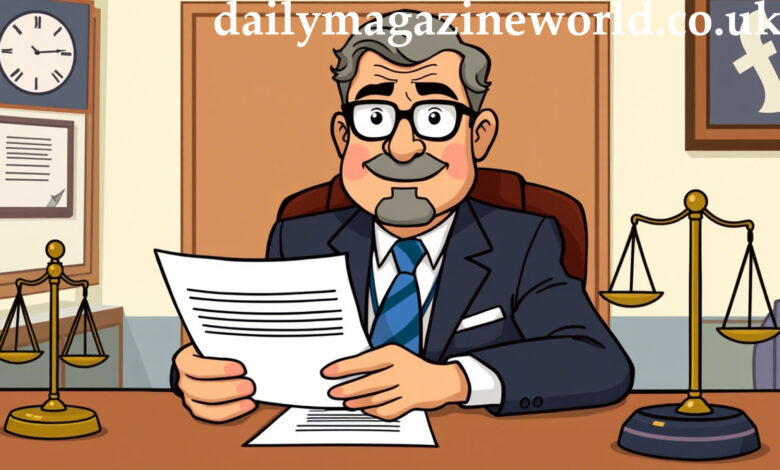Ombudsmänner: Advocates for Fairness and Justice in Society

Ombudsmänner, also known as ombudsmen, play an essential role in ensuring that citizens’ voices are heard, and their grievances are addressed. They are impartial figures who oversee disputes, mediate conflicts, and provide solutions, often within the realms of government, business, and various public sectors. In this article, we will delve into the significance of ombudsmänner, their functions, and how they serve as advocates for fairness, equality, and justice in society.
What is an Ombudsmann?
An ombudsmann (plural: ombudsmänner) is an independent and neutral entity tasked with investigating complaints and resolving disputes between citizens and public or private institutions. The role of an ombudsmann is crucial in ensuring fairness, transparency, and accountability. They often work in government agencies, corporations, or other organizations to address issues like poor customer service, discriminatory practices, or breaches of consumer rights.
The Role and Function of Ombudsmänner
The primary responsibility of an ombudsmann is to serve as a mediator between citizens and institutions. The key functions include:
-
Complaint Handling: Ombudsmänner are responsible for receiving, investigating, and resolving complaints from individuals who feel wronged by an organization or public body.
-
Mediation and Negotiation: They act as neutral third parties, facilitating dialogue and helping to find mutually agreeable solutions to disputes.
-
Monitoring and Accountability: Ombudsmänner often oversee organizations to ensure compliance with laws and regulations, particularly in areas like consumer rights, data protection, and administrative justice.
-
Promoting Justice and Fairness: One of the most vital roles of ombudsmänner is to ensure that both public and private institutions act justly, adhering to ethical and legal standards.
Why Are Ombudsmänner Important?

The presence of ombudsmänner within various sectors plays a crucial role in promoting transparency, accountability, and consumer rights. They provide individuals with a safe, unbiased platform to voice their concerns, ensuring that their grievances are addressed fairly. Here’s why ombudsmänner are so important:
-
Ensuring Accountability: Institutions are held accountable for their actions and practices, ensuring they operate within legal and ethical boundaries.
-
Improving Transparency: Ombudsmänner help expose and correct unjust practices, promoting a culture of openness and honesty within organizations.
-
Advocating for Citizens’ Rights: They ensure that citizens are not taken advantage of by powerful institutions and help to protect the rights of individuals, particularly in areas like consumer protection, employment, and public services.
-
Enhancing Public Trust: By resolving disputes in an impartial manner, ombudsmänner help build trust between citizens and the institutions they rely on.
Key Areas of Ombudsmänner’s Work
Ombudsmänner operate in various fields, providing oversight and ensuring that citizens are treated fairly. Some of the key areas they cover include:
-
Consumer Protection: Ombudsmänner are often called upon to resolve disputes between consumers and businesses, ensuring that products and services meet regulatory standards.
-
Government Accountability: Ombudsmänner play a vital role in holding government bodies accountable for their actions, ensuring that public officials and institutions comply with the law and treat citizens fairly.
-
Workplace Disputes: In some cases, ombudsmänner mediate disputes in the workplace, helping to resolve issues like discrimination, unfair treatment, and employee rights violations.
-
Healthcare and Education: Ombudsmänner are also crucial in healthcare and education, ensuring that individuals receive proper services and that any grievances related to these sectors are addressed.
How Ombudsmänner Build Trust and Promote Justice
Ombudsmänner are advocates for fairness and justice. They work tirelessly to create a more equitable society by ensuring that everyone, regardless of their position or background, has access to the same level of fairness and protection. This includes their role in resolving conflicts, holding institutions accountable, and advocating for the rights of individuals.
By staying neutral and independent, ombudsmänner instill trust in both individuals and organizations. Their role as unbiased mediators and advocates for justice allows them to build relationships with both citizens and institutions, creating a more transparent and accountable system.
Ombudsmänner and the Future of Justice
As the world continues to evolve, so too does the role of ombudsmänner. The growing complexities of the global economy, technological advances, and evolving social norms require that ombudsmänner adapt and expand their role to ensure fairness and justice in a rapidly changing world. The future of ombudsmänner will involve:
-
Expanding Services: Ombudsmänner will continue to expand their services to new areas, including digital platforms, privacy concerns, and emerging technologies.
-
Addressing Global Issues: As international relations become more interconnected, ombudsmänner will increasingly play a role in resolving cross-border disputes, human rights issues, and global governance challenges.
-
Innovation in Mediation: With the rise of artificial intelligence and automated processes, ombudsmänner may adopt innovative technologies to better handle complaints and disputes, ensuring that justice is served more efficiently.
Conclusion
Ombudsmänner are pillars of fairness, transparency, and justice. They offer a crucial service in holding institutions accountable, advocating for citizens’ rights, and promoting a fairer society. By acting as impartial mediators and ensuring that disputes are handled equitably, ombudsmänner play an indispensable role in fostering trust between individuals and organizations.
Frequently Asked Questions (FAQs)
-
What is the difference between an ombudsmann and a mediator?
-
An ombudsmann is typically an independent figure with the authority to investigate complaints and ensure compliance with laws, while a mediator facilitates negotiations between disputing parties but doesn’t have the same investigative powers.
-
-
How can I file a complaint with an ombudsmann?
-
Complaints can be filed directly with the ombudsmann’s office, usually through an online form, email, or phone. The specific process depends on the region and sector.
-
-
Is the service of an ombudsmann free?
-
Yes, most ombudsmänner offer their services free of charge to the public, as they are typically government-funded or supported by nonprofit organizations.
-
-
Can ombudsmänner make binding decisions?
-
While ombudsmänner can investigate complaints and offer recommendations, they generally do not have the authority to impose binding decisions. However, their findings often carry significant weight, and institutions are typically expected to follow their recommendations.
-
-
How long does it take for an ombudsmann to resolve a complaint?
-
The resolution time varies depending on the complexity of the issue and the organization involved. Generally, ombudsmänner strive to resolve complaints in a timely manner, but it can take several weeks or months for more complex cases.
For More Information Visit dailymagazineworld.co.uk
-





